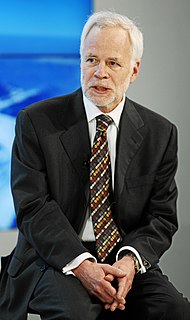A Quote by Angela Merkel
So Europe needs to be competitive and we also need to be competitive if we wish to remain an interesting economic partner for the United States. This has to be done on the basis of strength, of competitiveness.
Related Quotes
There will be no peace in Europe if the States rebuild themselves on the basis of national sovereignty, with its implications of prestige politics and economic protection... The countries of Europe are not strong enough individually to be able to guarantee prosperity and social development for their peoples. The States of Europe must therefore form a federation or a European entity that would make them into a common economic unit.
The Federated Republic of Europe-the United States of Europe-that is what must be. National autonomy no longer suffices. Economic evolution demands the abolition of national frontiers. If Europe is to remain split into national groups, then Imperialism will recommence its work. Only a Federated Republic of Europe can give peace to the world.
The United States must recognize that access to reliable and affordable energy is the basis for economic expansion - and global competitiveness. And the nation must move from discouraging fossil fuel development - which is largely our approach today - to enabling it. We need all forms of energy to keep our economy strong.
Competitiveness is defined as the ability of companies to compete while maintaining or improving the average standard of living. If you are cutting wages to become more competitive, that's not really more competitive. It's raising the skill and the efficiency of those workers so that they can support and sustain that higher wage.
I do consider myself a competitive person, but I'm not competitive to the point where I will do anything to win. I wouldn't step on somebody just to get to the next level. I would have to do it fair and square. I'm kind of competitive in a way to where I like to figure out things myself, and if I need help, I'll ask.
The United States really only accounts for about 3 percent of the economic engagement with Russia. Europe is 40 percent, and so Europe's contribution to this pressure is far more than symbolic. It's very practical. And that's one of the many reasons why we have worked hard to remain in close coordination with our European partners.











































